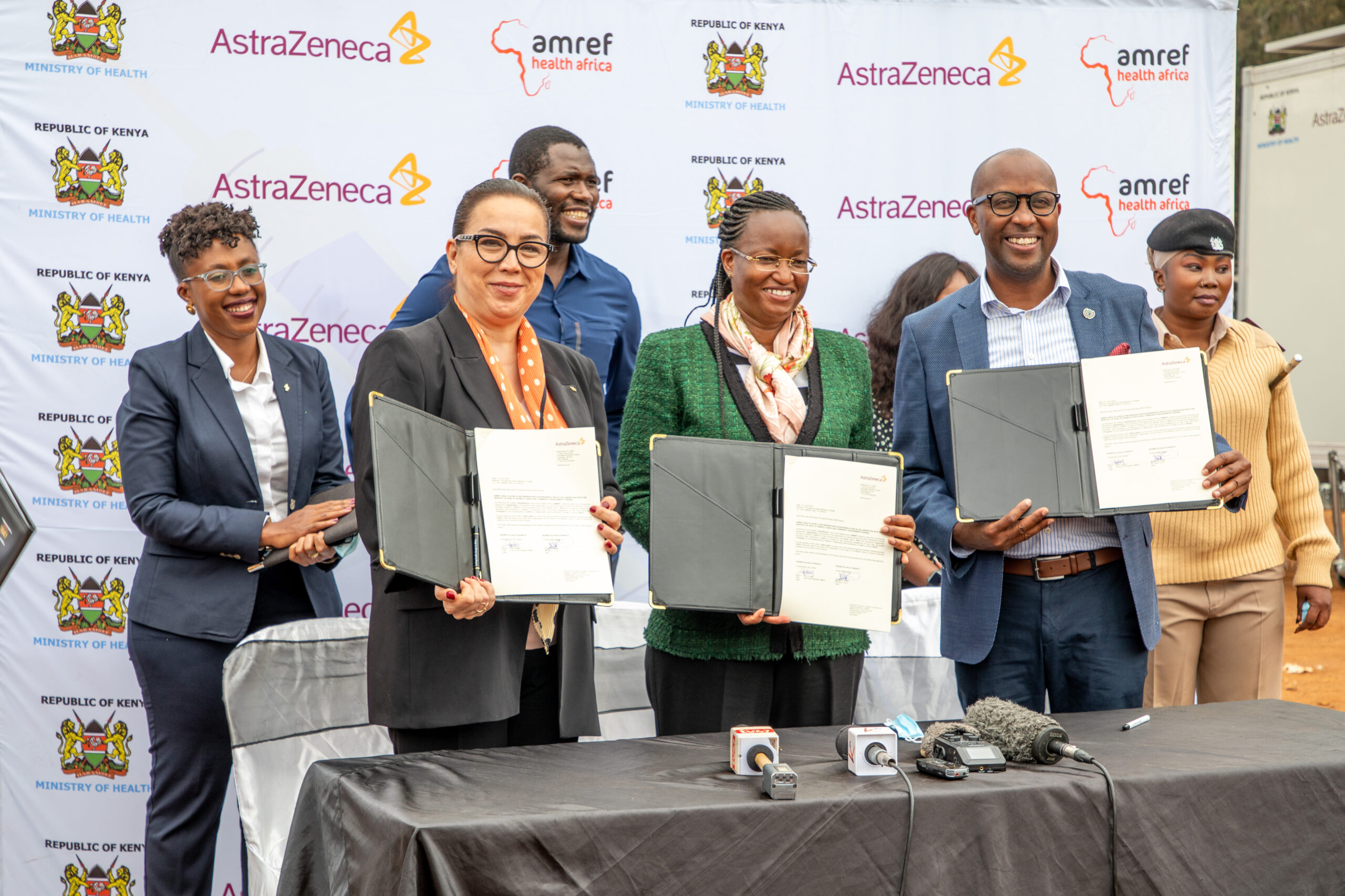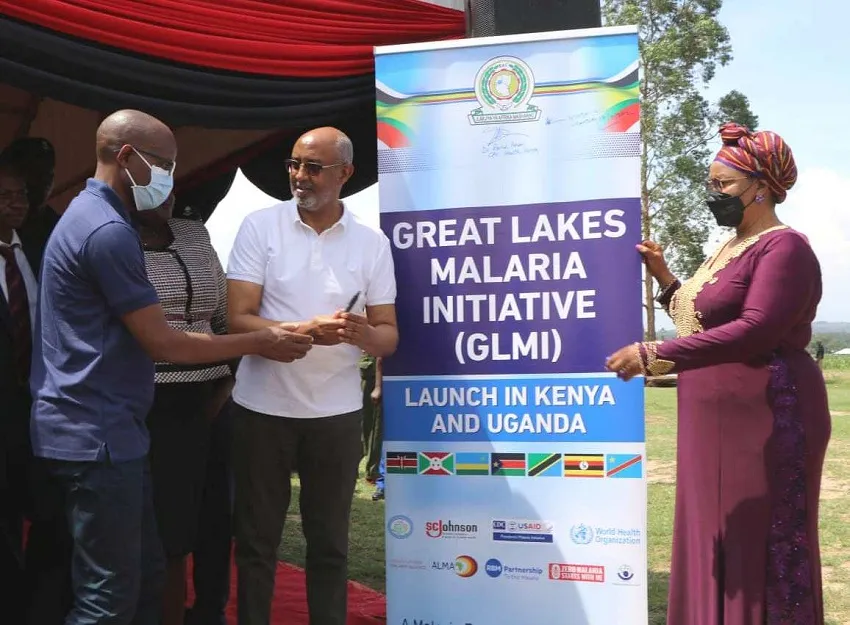Elders Bless Girls who Chose to Skip the Cut
Thursday, 23 February, 2017


Boys and girls graduate in colourful alternative rite of passage ceremony
In a significant shift from tradition, Maasai elders in Loitoktok, in Kenya’s Kajiado County, yesterday blessed 363 girls who had chosen to forgo traditional female genital as a rite of initiation into womanhood. Instead the girls went through an alternative rite of passage ceremony that saw them graduate to womanhood with their cultural dignity intact, but without having to undergo the harmful cut.
The colourful celebration, held in Lenkisim sub-location on the foothills of Mt Kilimanjaro, was a significant win against female genital mutilation. The event was attended by the Deputy Governor for Kajiado, Mr Paul Ntiati, the chairperson of the National Anti-FGM Board Linah Jebii Kilimo, Amref Health Africa Group Chief Executive Officer Dr Githinji Gitahi, Amref Kenya Country Director Dr Meshack Ndirangu and various county and community leaders.
Since 2009, Amref Health Africa has supported communities in Kajiado and Samburu counties to hold Alternative Rite of Passage (ARP) ceremonies that steer girls away from the harmful effects of female genital mutilation (FGM) and early marriage, Instead the girls are able to stay in school and to escape the death, disability and health complications brought on by FGM. So far, 10,500 girls have passed through the programme.


In Kenya, 100,000 girls undergo FGM every year. Consequently, 21 per cent of girls and women in Kenya (around 2.5 million) have undergone the cut, according to the Kenya Demographic Health Survey 2014. This is despite the documented risks of FGM such as fatalities resulting from excessive bleeding, psychological trauma, HIV resulting from sharing of unsterilised blades and complications in childbirth.
The biggest challenge in ending FGM has always been the fact that it is culturally entrenched, and has the backing of cultural leaders. Amref has secured the support of influential groups like Maasai elders and morans, enabling the ARP programme to grow. The elders were a significant part of the graduation, spraying milk over the girls as a sign of blessing and exhorting them to continue with their education.
In addition to cultural elders and the local leadership, Amref Health Africa has also been able to win the support of traditional birth attendants (TBAs), who typically double up as female circumcisers.
The local leadership has also come out to support the ARP programme and to take a firm stand against FGM. “The Laws of Kenya must be upheld. FGM must not be allowed, and we will see to it that anyone caught subjecting young girls to thise practice is dealt with appropriately,” said area chief Wilson Lekutuk.
Anti-FGM Board chairperson, Hon Kilimo spelt out the provisions of the law on FGM, including the penalties for those who transgressed it.
“ARP allows girls to stay in school and contribute positively to the socio-economic growth of their communities and country,” observed Dr Gitahi, adding that Amref Health Africa was committed to continuing the war against FGM in Africa.
Dr Ndirangu thanked all partners who were working with Amref Health Africa on the anti-FGM agenda, especially community leaders and government officials, as well as the Dutch Postcode Lottery.
“We are grateful to the 400 cultural elders, 85 former circumcisers, 246 religious leaders, 817 morans and the community in general for standing up and saying no to FGM,” he said.
Also read: Men against FGM & child marriage in Kenya
Written by Caroline Khamala







